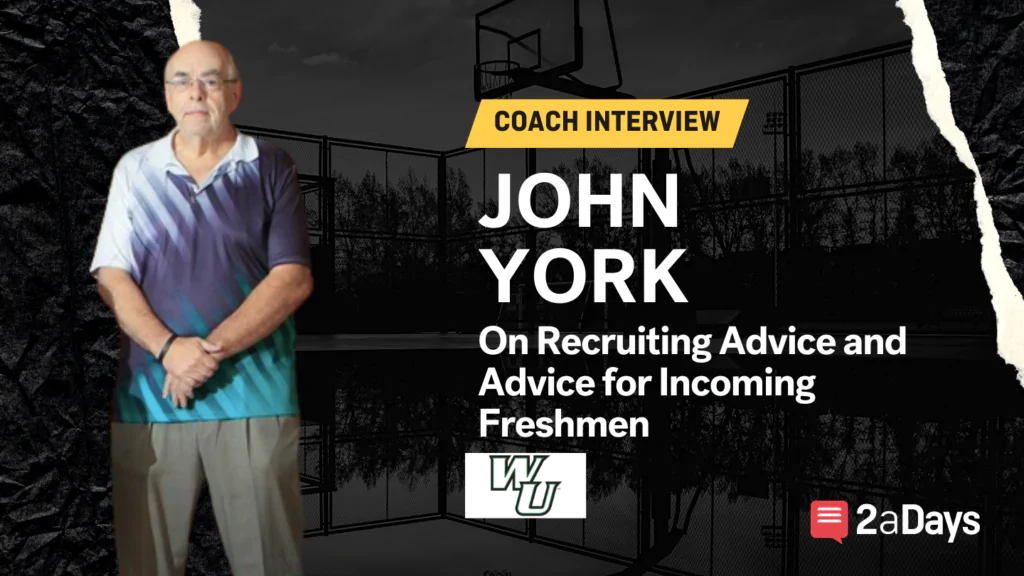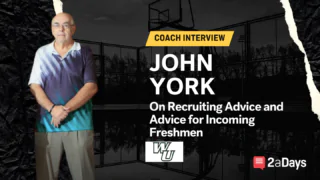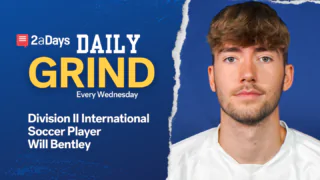This is part 2 of our original interview with college bowling coach John York. He just gave us such good answers, we couldn't resist! If you didn't see the first interview, John York is the head women's bowling coach at Wilmington University. He has an impressive resume where he has been named the Eastern Intercollegiate Bowling Conference (EIBC) Coach of the Year in 2012 and named to the Top 100 Coaches in Bowler's Journal International Magazine in 2010, 2012, and 2014. Without further ado, here is the second part of John York's interview on college bowling.
Be honest and decisive. Do not be afraid to fail, and admit when you do.
1. Can you tell us the importance of highlight reels vs seeing an athlete in person at events such as showcases and camps for college bowling?
When I observe a player's video, my eyes can usually identify in several shots where I stand on their physical game at that point in time. From there, I like to know how long the player has been bowling to be able to hopefully assess their progression in the sport. This helps me determine how much farther we can advance that player. From there, it is important to communicate with the player to get an indication of their level of commitment to the sport. Showcases are fine, they allow exposure, but I like to have the time and ability to see the player in a more informal setting. I will often drop into centers to watch players I am interested in without publicizing it beforehand. We have recruited players in the past before ever meeting them face-to-face. This is mostly due to budget restrictions and bringing in players from the other side of the country. We do the best we can in communicating with these players outside of face-to-face meetings.
2. What do you look for when viewing the highlight tapes?
When watching highlight tapes, I will look for form, flow, tempo, ankle span, hand position, ball speed, rev rate (approximate), and spare techniques.
3. Do you have a story of an athlete that you learned something from?
I had a player who battled dyslexia and ADHD and was told she was stupid and would never go to college. Not only did she bowl 300 in her first tournament, but went on to receive her Bachelor's Degree and now works for the FBI. Also, my current assistant was a fragile, unfocused player when she arrived here, and has gone on to become our first team captain for 3 years, and now our assistant coach, along with working a job and being an Academic All-American for 4 years.
4. If an athlete is looking to become a college bowling coach, what advice would you give them?
Be honest and decisive. Do not be afraid to fail, and admit when you do. Keep an open mind and grow in the job, do not remain rigid in all of your beliefs. Always evaluate yourself after a tournament to be better prepared for the next one.
5. How would you describe your coaching style? What do you find most rewarding about coaching college bowling?
I have previously coached collegiately at NJIT for 4 years, Cheyney University for 3 years, and Wilmington University for the last 7 years (since the program began). I am a coach who works on mechanics and execution, along with addressing and shaping the mental aspect of the player's mindset around that. This is supplemented with designing the equipment arsenal to match the player's characteristics. Finally, we take these pieces and use them to best figure out our lane play strategies, based on the patterns, lane surface, topography, and other variables that affect ball reaction.
The most rewarding aspect of coaching for me is to see the development, growth, and evolution of the players and how the lessons learned on the lanes transfer to other aspects of their life.
I have a player, who when she first came to college, was overweight, unsure if she even wanted to join the team, and was not even academically eligible, based upon her high school academic record. Her transformation has been utterly incredible. She ended up joining the team and is now a workout junkie. She has grown to become a captain, is now a Dean's List student, graduated with her Bachelor's Degree, and is now well on her way to gaining her Master's Degree. These stories are the best rewards a coach can receive.
6. What does it take to be successful on your team?
It takes commitment, ownership, and passion for the sport. We want players to treat this experience like a privilege and a celebration.
7. Can you share stories of athletes that have gone on to do great things after college?
In 7 years, we have had 6 players go on to graduate school. The program is still fairly young, and the roster is small, so there will be many great things on the horizon.
8. What advice would you give an athlete to help them do well both on the team and in class?
The ability to compartmentalize. We keep academics and athletics separate. We have free tutoring available, study tables for freshmen, and we track academic progress. Every year, we have had multiple academic award winners each year of the program. As previously stated, my assistant was a perennial Academic All-American and worked the entire time. She bowled with us for 5 years (COVID year). We use her as a role model and she gives great advice on how to balance the life of a student-athlete. Our current captains are returning to complete their COVID year in graduate school, and both also work.
9. Here comes a big question. What are 3 words your players would use to describe you?
Honest, demanding, and fair.
10. What platform(s) do you use to discover or recruit athletes?
We recruit using Facebook, Instagram, YouTube, League Secretary (internet), email addresses for NTCA coaches from Junior Gold, recruitment seminars, and direct visits to observe players.
11. Finally, what can incoming freshmen expect within their first year as college bowling athletes?
I spend lots of time going over this with PSAs before they commit here because I need to know if they are as committed as we are here. We practice 4 times per week and work out twice a week with a trainer. We provide equipment, gear, meal money, nice travel in a luxury van, and nice hotels. Per year, we will attend 10 tournaments. We are an automatic qualifier for NCAA Regionals if we win our conference championship. Players have free bowling at any time they choose to go on their own. We also have an open-door policy, players can speak their minds at all times.
Image Credit: WilmU Women's Bowling
* Originally published on July 10, 2023, by Bella Nevin







